You may think you covered the classics in high school English, but how many of the science fiction greats have you read? We're here to let you know there’s a whole world of classic science fiction out there that you may not have discovered yet—and it's well worth your time! From H.G. Wells to Samuel R. Delany, these books will take you to a time and space far, far away.

The Forever War
The first book in The Forever War series tells of an interstellar war between Man and the Taurans. The novel’s protagonist, William Mandella, has been conscripted for an elite task force to fight against an alien species called the Taurans. Though their first expedition only lasts two years from their perspective, 27 years have passed on Earth. And when they return they have a hard time adjusting. The novel begs the question of whether or not war is necessary and does so in a compelling way through science fiction.
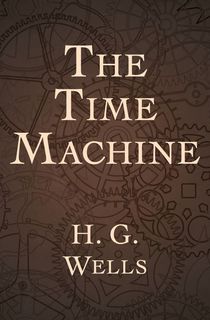
The Time Machine
Published in 1895, H.G. Wells’s The Time Machine is often credited with popularizing time travel, which is now a staple in entertainment of all kinds. The story follows a scientist and inventor referred to as Time Traveller by the narrator as he recounts adventures he had when traveling from Victorian England to A.D. 802,701. The story has been adapted numerous times, most recently for the 2002 Guy Pearce-starring film.
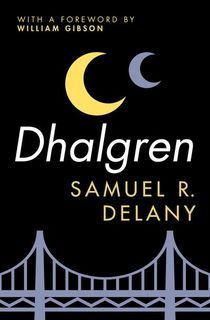
Dhalgren
Delany’s novel takes place in the city of Bellona—a fictional city located in the American Midwest that was severely damaged by an unknown catastrophe. The novel’s protagonist, “the Kid,” suffers from amnesia and doesn’t remember what his name is or where he came from. As he journeys throughout the city and meets a cast of strange characters, it is clear that he is in some ways an unreliable narrator and the mystery is trying to deduce what, if anything, is real.
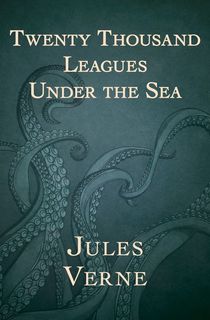
Twenty Thousand Leagues Under the Sea
Like H.G. Wells, Jules Verne published his science fiction works in the late 1800s. Twenty Thousand Leagues Under the Sea was originally serialized in a French periodical between 1869 and 1870. The plot follows an expedition led by the U.S. government after a mysterious sea monster is spotted by several nations. But as the crew soon discovers, it’s not a sea monster at all… but rather, something much more ahead of its time.
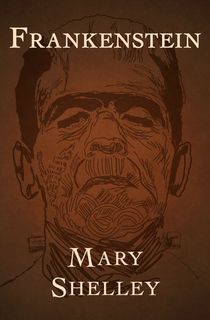
Frankenstein
It’s likely that you've heard of Mary Shelley’s classic sci-fi horror novel, but we’ll cover the basics: Dr. Victor Frankenstein accidentally creates a monster, and when that monster realizes that humans are afraid of him he swears revenge on his creator. The novel is written in epistolary form, or through letters—a style that is very popular in contemporary fiction. Originally published anonymously in 1818, Shelley took credit for her popular work when its second edition was published in 1822. Incorporating science fiction into a Gothic novel set Shelley apart and is one reason why the book has made such a lasting impression that still holds today.

Kindred
Published in 1979, Kindred is still one of Octavia E. Butler’s most popular works. Part time-travel story, part slave narrative, it follows Dana and her husband, Kevin, who travel back in time from 1970s Los Angeles to 1800s Maryland. Through her time travel, Dana discovers her ancestors and witnesses first-hand the atrocities committed against slaves. The novel examines many issues that are still present today, including slavery’s legacy in America.

Dune
The first winner of the Nebula Award for Best Novel, Frank Herbert’s 1965 novel is the first in the Dune saga. The book is set in a future in which noble houses control different planets. The story follows Paul Atreides, whose noble family takes control of Arrakis—a desert planet that is the only producer of the “spice” melange, which is the most valuable substance in the universe. But taking control of the planet is both a dangerous and coveted undertaking. The book has been adapted numerous times—notably in an infamous 1984 film by David Lynch.

Ender's Game
Another book that has been adapted for a major film, Ender’s Game tells the story of a future Earth in which children are trained from a very young age to fight against the “buggers”—an insectoid alien species. While undergoing training, Ender’s tactical genius is revealed, and he is promoted through the ranks. Originating as a short story, Card soon expanded the series to include four Ender novels. Additionally, the military science fiction novel is even suggested reading for many military organizations—including the United States Marine Corps.

Do Androids Dream of Electric Sheep?
Philip K. Dick’s novel is best known as the inspiration for the film Blade Runner, and the recent sequel Blade Runner 2049. The story takes place in 2021, after the World War, which sent entire species into extinction and mankind off-planet. Androids indistinguishable from humans have been created, but are now seen as a threat and are banned from Earth. The story follows bounty hunter Rick Deckard, who is tasked with “retiring” (killing) androids. The book itself serves as a commentary on what it is to be human, as androids are said to possess no empathy.

The Martian Chronicles
Bradbury’s collection of stories takes place during a time in which humans colonize Mars due to atomic devastation on Earth. The story follows the main conflict between indigenous Martians and the humans who have come to live there. The stories were originally published in science fiction magazines during the late 1940s, before being published together. Bradbury, of course, had a prolific career that included famous works like his dystopian novel Fahrenheit 451 and the dark fantasy novel Something Wicked This Way Comes.

I, Robot
Another collection of short stories, Isaac Asimov’s collection first appeared in science fiction magazines before being compiled into book form in 1950. Within each short, Dr. Susan Calvin is telling a story to a reporter. Each story covers a time in which robots interact with humans, from their origins to their place in a not-so-distant future. The “Three Laws of Robotics” introduced by Asimov form the rules which robots live by…and cause plenty of problems of their own.

Nineteen Eighty-Four
Orwell’s classic dystopian novel is set in a world of never-ending war, in which government surveillance has been heightened to an extreme. The main plot follows Winston Smith, a member of the middle class Outer Party who works for the Ministry of Truth. His job is to rewrite records and alter photographs to match the state’s current version of history. The novel has served as a commentary on nationalism, censorship, and government surveillance since its publication in 1949 and continues to be an important work today.
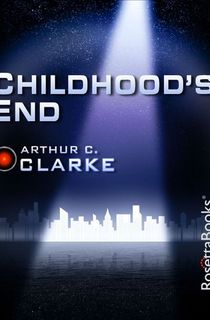
Childhood's End
Many science fiction fans might know author Arthur C. Clarke best for his contributions to the Stanley Kubrick film, 2001: A Space Odyssey, and the accompanying novel, which published in 1968. However, that's just the start of his accomplishments. Clarke was knighted in 1998, hosted his own television shows, and named the 7th SFWA Grand Master by the Science Fiction Writers of America.
While his list of classics is equally impressive, the best of the bunch may well be Childhood's End. Published in 1953, the novel established his popularity. The plot details a supposedly peaceful arrival of an alien species, which ought to bring on a utopia. The only cost seems to be human identity itself… but is that a good thing or a bad thing?

Brave New World
Another dystopian novel to make the list, Brave New World takes its name from Shakespeare’s The Tempest and is set in a future London where people are engineered through artificial wombs. An apparent utopia, its members are soothed constantly with a drug called soma. After visiting civilization outside of this world, it becomes clear to the characters that this way of life is not normal. The novel reflects on how a technologically advanced future could destroy individuality.

A Clockwork Orange
From utopia to dystopia, Anthony Burgess and Arthur C. Clarke both saw their novels made into Stanley Kubrick films. The classic offers a nightmarish vision of the near-future. Published in 1962, A Clockwork Orange tells the story of violent, sociopathic teen Alex and his droogs (or friends). Drugs, mayhem, and black comedy meld together in a frightening fable about good and evil.








